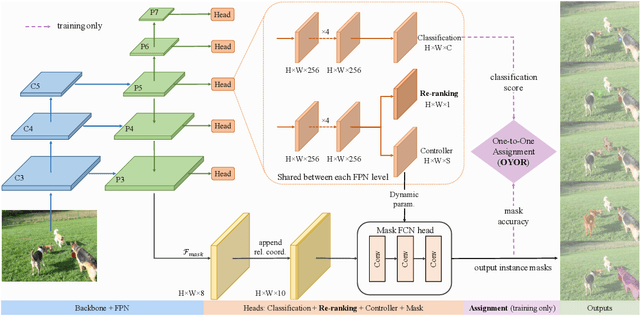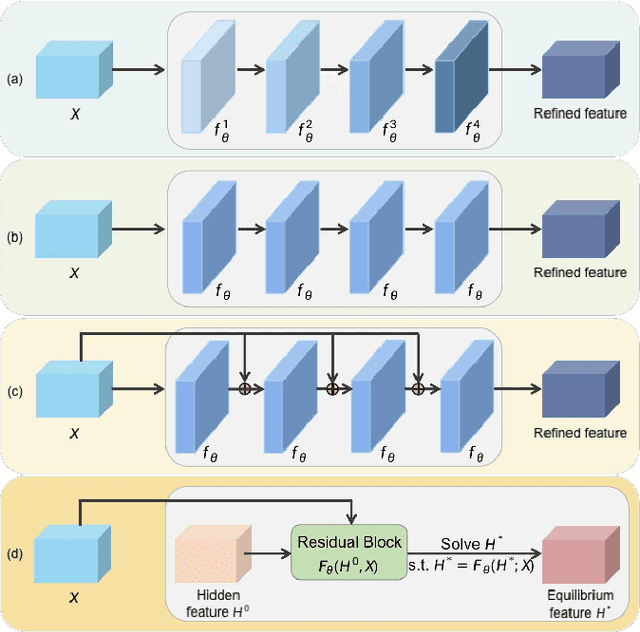Lufan Ma
UniInst: Unique Representation for End-to-End Instance Segmentation
May 26, 2022



Abstract:Existing instance segmentation methods have achieved impressive performance but still suffer from a common dilemma: redundant representations (e.g., multiple boxes, grids, and anchor points) are inferred for one instance, which leads to multiple duplicated predictions. Thus, mainstream methods usually rely on a hand-designed non-maximum suppression (NMS) post-processing step to select the optimal prediction result, which hinders end-to-end training. To address this issue, we propose a box-free and NMS-free end-to-end instance segmentation framework, termed UniInst, that yields only one unique representation for each instance. Specifically, we design an instance-aware one-to-one assignment scheme, namely Only Yield One Representation (OYOR), which dynamically assigns one unique representation to each instance according to the matching quality between predictions and ground truths. Then, a novel prediction re-ranking strategy is elegantly integrated into the framework to address the misalignment between the classification score and the mask quality, enabling the learned representation to be more discriminative. With these techniques, our UniInst, the first FCN-based end-to-end instance segmentation framework, achieves competitive performance, e.g., 39.0 mask AP using ResNet-50-FPN and 40.2 mask AP using ResNet-101-FPN, against mainstream methods on COCO test-dev. Moreover, the proposed instance-aware method is robust to occlusion scenes, outperforming common baselines by remarkable mask AP on the heavily-occluded OCHuman benchmark. Our codes will be available upon publication.
Implicit Feature Refinement for Instance Segmentation
Dec 09, 2021



Abstract:We propose a novel implicit feature refinement module for high-quality instance segmentation. Existing image/video instance segmentation methods rely on explicitly stacked convolutions to refine instance features before the final prediction. In this paper, we first give an empirical comparison of different refinement strategies,which reveals that the widely-used four consecutive convolutions are not necessary. As an alternative, weight-sharing convolution blocks provides competitive performance. When such block is iterated for infinite times, the block output will eventually convergeto an equilibrium state. Based on this observation, the implicit feature refinement (IFR) is developed by constructing an implicit function. The equilibrium state of instance features can be obtained by fixed-point iteration via a simulated infinite-depth network. Our IFR enjoys several advantages: 1) simulates an infinite-depth refinement network while only requiring parameters of single residual block; 2) produces high-level equilibrium instance features of global receptive field; 3) serves as a plug-and-play general module easily extended to most object recognition frameworks. Experiments on the COCO and YouTube-VIS benchmarks show that our IFR achieves improved performance on state-of-the-art image/video instance segmentation frameworks, while reducing the parameter burden (e.g.1% AP improvement on Mask R-CNN with only 30.0% parameters in mask head). Code is made available at https://github.com/lufanma/IFR.git
 Add to Chrome
Add to Chrome Add to Firefox
Add to Firefox Add to Edge
Add to Edge